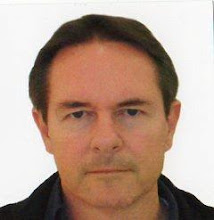Whispering ancestors
For reasons never made clear, Mum had died during the voyage, and was buried at sea. Dad and the lads eventually landed in Brisbane. They immediately struck southwards, towards Sydney Town, no doubt trying to escape the heat. There’s no record of what they thought of Brisbane, but I’m convinced they would have understood the rough town’s conservative parochialism – having hailed from deeply conservative Bavaria . One fragment of the story has it that these people were dairy farmers, craving the familiar. Another fragment has it that they were bakers, standing at the end of a long, respected line of craftspeople and traders in that field of food.
Unitl recently, my understanding of this family saga was that Dad and the boys pushed down the NSW coast, passing Sydney in their quest for dairy land. They apparently found it just south of the then small coastal town of Wollongong, tucked into the lush, shadow-filled folds of the Illawarra range. Once in place, they carved out farmland from the temperate rainforest, and tried settling down to farming.
For whatever reason, though, it all become too much, and Dad decided that life under Bismarck’s heel was likely to far easier long-term than life in a rude hut on a tree stump-studded Illawarra dairy. He soon left again for Germany, this time with all bar a 16-year-old son, Conrad. Conrad said he wasn’t leaving what he considered God’s Own Land, and his eventual resting place.
Conrad worked the land for several years, pretty well single-handed, taking time out at night, by candlelight, to write to his brothers, begging them to return. Not because he needed help. But because he was convinced Germany had nothing left for strapping young men but more of Bismark’s Blood and Iron, and graves to be dug during and after future, bleaker skirmishes in Europe’s seemingly never-ending civil war.
Apparently Conrad’s tactic worked, as his brothers – but not their Dad – returned to settle in New South Wales, and to continue clearing pockets of sub-tropical rainforest land in the fecund escarpment range. They would have made money from felling beautiful red cedars, but the ultimately family gain was to come from dairy cattle.
Conrad and those who followed - including a son called Gus - become involved in local government and civic issues.
Theirs would have been a much quieter and a much more measured world. By the time the railway arrived from Sydney in the 1880s, they would still have been more than two hours from Australia’s largest city. Before then, it would have been a solid, hard-day’s travel by stage coach or sea. Longer if they walked.
These ancestors would have made their own entertainment, read by tallow light and lived by the rising and setting of the sun, the seasons and the ringing of axes among the trees – in so far as warmer or cooler weather would have affected their growing dairy herds.
The sad, sad irony of Gus' life and quest revolved around guns. While he and a brother-in-law were hunting rabbits in the hills behind Dapto, his shotgun discharged, accidentally killing the brother-in-law instantly while climbing through a fence.
Before the arrival on the scene of my father’s father, Ted, and his brother, Cyril, this hunting accident that must have rocked the family to the core.
Gus, who had been a keen bunny bagger, never picked up a gun again.
Then there's the alternative saga . . . The one in which only Conrad Jnr and his father arrived in Australia without Conrad's mother. She'd elected to stay (for whatever reason) behind in Germany. Conrad was perhaps nine when he and his father landed in Australia, and headed directly to the south of Wollongong, prehaps having been lured there by preceding Germans.
There were no other brothers. As the story goes, Conrad's mother never did come out to Australia, and his father decided to head back to Germany to either bring her out or tend to her in sickness. Conrad was 14 when he saw his father off to Germany, and he never saw either parent again. Conrad had been left in the care of his father's local friend, a gentleman known as German Jack.
Conrad was a hard worker, according to this version of the truth, but one considered somewhat strange by prevailing local standards. When key Illawarra industries were timber-getting and rudimentary coal mining, Conrad opted to buy cheap land in and around Dapto, clear it of cedar, and acquire dairy and beef cattle. He did this in the company of sdeveral other settlers.
When he came of age, Conrad married an emanicpated convict girl, Mary House, and together they settled down to create and raise six sons and a daughter. And by the time Conrad died, zat a ripe old age for the time, he'd accumulated enough Illawarra land to leave each son a reasonable farm, and his daughter enough money to be independently comfortable.
One of those sons went on to have my Grandfather Ted as his child, and Ted went on to have my Father Joe as his child.
They say there's never such a thing as absolute truth, only versions of the truth. The way we remember things may not be the way others remember the same things. As versions go, and in the absense of a formal, written family tradition, either one of these stories will do . . . And one, in time, will become sufficiently heroic to smother the other. Its repeated telling will ensure its elevation to absolute truth.


0 Comments:
Post a Comment
<< Home